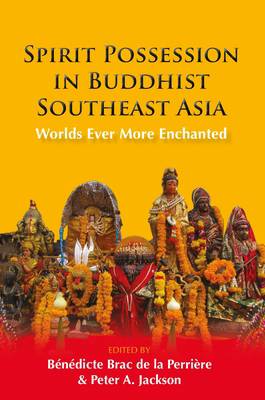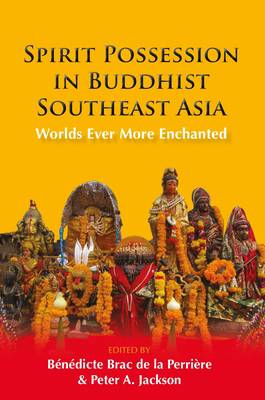
- Afhalen na 1 uur in een winkel met voorraad
- Gratis thuislevering in België vanaf € 30
- Ruim aanbod met 7 miljoen producten
- Afhalen na 1 uur in een winkel met voorraad
- Gratis thuislevering in België vanaf € 30
- Ruim aanbod met 7 miljoen producten
Zoeken
Spirit Possession in Buddhist Southeast Asia
Worlds Ever More Enchanted
€ 42,95
+ 85 punten
Omschrijving
In dramatic contrast to the reported growing influence of doctrinal and fundamentalist forms of religion in some parts of Southeast Asia, the predominantly Buddhist societies of the region are witnessing an upsurge of spirit possession cults and diverse forms of magical ritual. This is found in many social strata, including the urban poor, rising middle classes and elite groups, and across the different political systems of Myanmar, Thailand, Cambodia and Vietnam. This volume reveals both the central historical place of spirit possession rituals in the Buddhist cultures of mainland Southeast Asia and their important contemporary roles to enhance prosperity and protection. This book examines the increasing prominence of spirit mediumship and divination across the region by exploring the interplay of neoliberal capitalism, visual media, the network cultures of the Internet, and the politics of cultural heritage and identity. It advances beyond critiques of the "secularization" and "disenchantment" theses to explore the processes of modernity that are actively producing magical worldviews and stimulating the rise of spirit cults. As such, it not only challenges the assumptions of modernization theory but demonstrates that the cults in question are novel ritual forms that emerge out of inherently modern conditions.
Specificaties
Betrokkenen
- Uitgeverij:
Inhoud
- Aantal bladzijden:
- 360
- Taal:
- Engels
- Reeks:
Eigenschappen
- Productcode (EAN):
- 9788776943103
- Verschijningsdatum:
- 31/07/2022
- Uitvoering:
- Paperback
- Formaat:
- Trade paperback (VS)
- Afmetingen:
- 152 mm x 226 mm
- Gewicht:
- 539 g

Alleen bij Standaard Boekhandel
+ 85 punten op je klantenkaart van Standaard Boekhandel
Beoordelingen
We publiceren alleen reviews die voldoen aan de voorwaarden voor reviews. Bekijk onze voorwaarden voor reviews.










